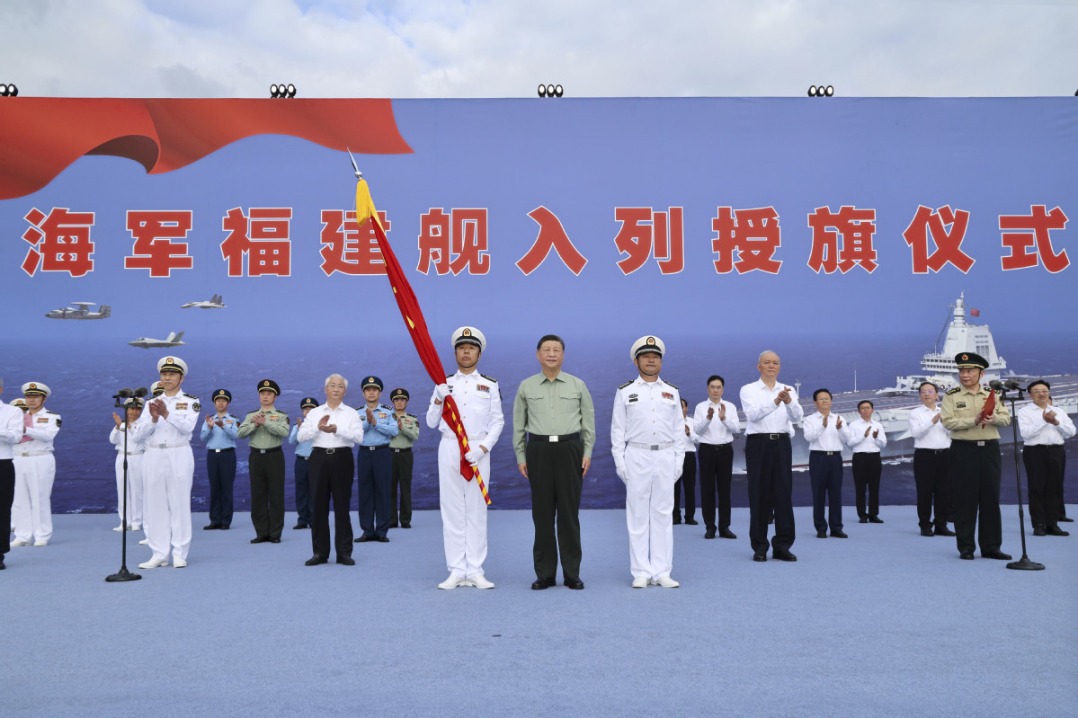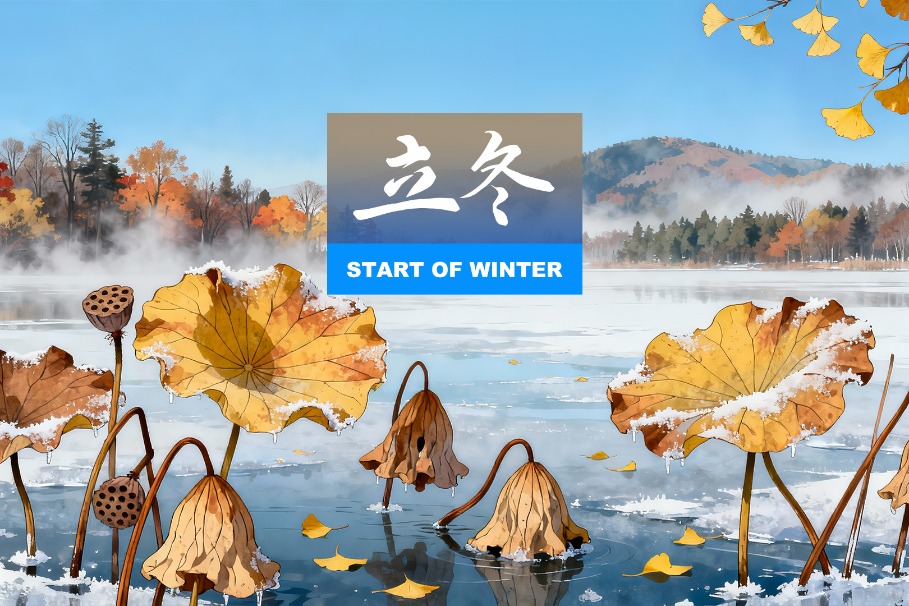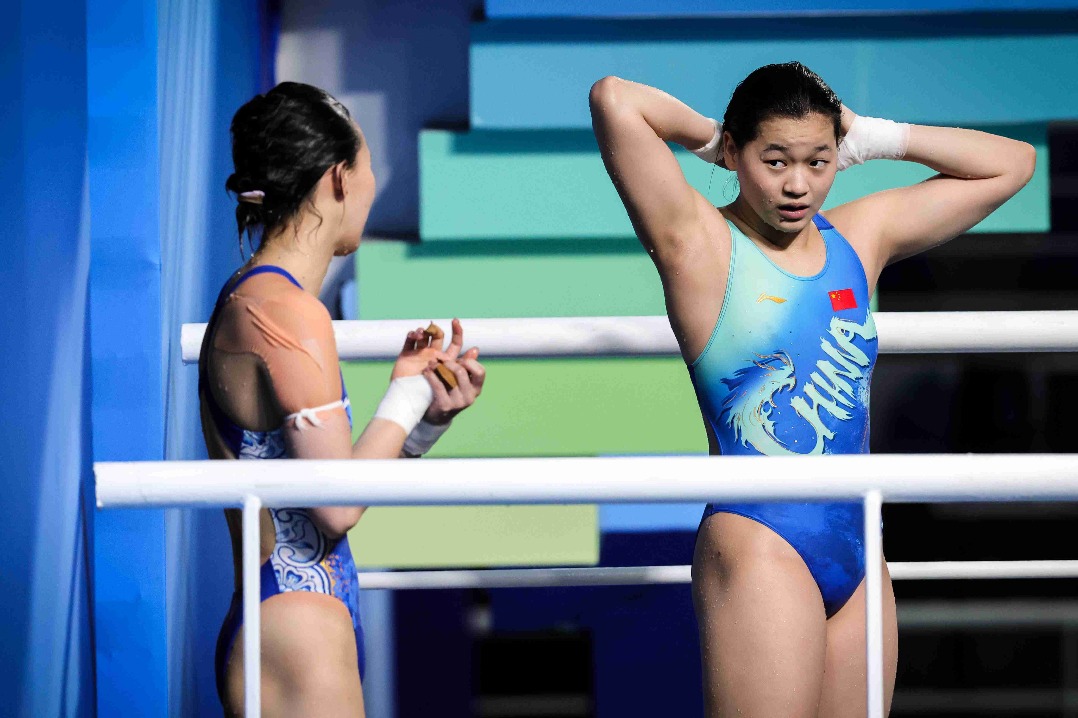BRICS must improve global governance

The 11 members of BRICS+ are incredibly diverse in culture, civilizational background, social customs and development levels. I realized how diverse they were when I saw a beautiful photo exhibition in a hall after a BRICS seminar in Rio de Janeiro, Brazil, on the last day of June. The seminar was held a week before the scheduled BRICS leaders' meeting in Brazil on July 6-7.
"Christ the Redeemer" stands atop Corcovado Mountain in Rio overlooking the vast Atlantic Ocean. Kremlin and the majestic Red Square glow in the reddish evening sunshine. India's Taj Mahal beckons viewers as an eternal symbol of love. The Palace Museum (Forbidden City) and the Tian'anmen Square in Beijing remind one that no power on Earth can destroy a 5,000-year-old civilization. Then there is the Great Sphinx of Giza in Egypt, a new member of BRICS, sitting in a desert and gazing at the farthest beginning and end of time. And the Azadi Tower in Tehran, an exquisite architectural marvel, with a stern message that no evil force can subdue an ancient people who value their freedom.
There were other photographs, too, displaying the unique richness of South Africa, Indonesia, Ethiopia and the United Arab Emirates. Seeing them, a thought flashed across my mind. Culture is the most precious heritage of humankind. But will it survive if wars and violent conflicts continue to erupt in different parts of the world? Without peace, all the wonderful creations of humankind could turn into rubble.
The US-Israel assault on Iran lasted only 12 days, but it showed the horrors of a new type of aerial warfare, and how brazenly Israel and the United States violate international law.
Israel's genocidal war on the defenseless Palestinian people in Gaza continues unabated. The terror attack by Hamas on Israel on Oct 7, 2023, is undoubtedly condemnable. But Israel has used it as an excuse to completely destroy Gaza.
Last month, the world also witnessed a four-day near-war between India and Pakistan, which was triggered by a barbaric terrorist attack on innocent tourists in India-controlled Kashmir.
At a recent summit at The Hague, NATO members decided to increase their military budgets, with the transatlantic military alliance making efforts to create an "Asian NATO", using the US-led Quad as a launchpad.
Coercive actions of different kinds have contributed to the turbulence across the world. For example, the Donald Trump administration has weaponized tariffs, creating instability in global trade. It is also abandoning its responsibility to save the planet from the ravages of climate change.
"Might is right" is the law of the jungle. Sadly, it is becoming the global norm.
The most worrisome reality in today's turbulent world is the state of the United Nations. While countries and peoples have become more closely interconnected and interdependent in the 21st century, global governance has never been as weak as it is today, with the US desperately trying to dis-empower the UN.
Therefore, in my speech at the seminar in Rio, I emphasized that the time has come to think of radical reforms to strengthen global governance, and make it more democratic and effective in eliminating the threats to peace and development worldwide.
Any permanent member of the UN Security Council which resorts to military action against another sovereign nation without prior authorization by the Security Council, and hence violates the principles of the UN Charter, should have its membership suspended and its veto power permanently revoked.
Culture, education and wisdom embedded in all civilizations are the best healers of maladies created by the existing unjust world order. In fact, they can prevent wars, violence and other injustices. As UNESCO's motto says, "since wars begin in the minds of men, it is in the minds of men that the defenses of peace must be constructed".
Therefore, UNESCO should guide the cultural and educational policies of national governments with the aim of promoting both world and local cultures, and play an active role in civilizational and inter-religious dialogue to foster the spirit of mutual understanding, mutual respect, mutual trust, tolerance and cooperation.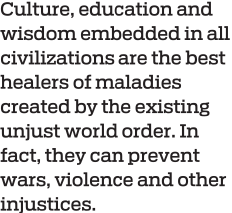
Common people today play an inadequate role in global governance, and in regional and global affairs, because those have remained the exclusive domain of the national governments. As a result, people's voices, their thoughts, their hopes and aspirations, and their concerns are not being heard on global platforms. In order to inject new impetus into global governance, with cultural power and not military power as its main driving force, there is a need to think of bold new ideas.
One such idea is that all UN-recognized people's or non-governmental organizations working in areas of socioeconomic development, cultural revitalization and exchange, sports, media, scientific and technological progress, environmental protection, inter-religious and inter-civilizational dialogue, conflict-resolution and peace promotion should be allowed to play a more effective role in promoting the UN Charter.
And organizations of youths, students, women, academics, doctors, teachers, scientists, sportspersons, think tanks, business groups, artists, poets, writers and cultural personalities, religious leaders, marginalized communities should all have a say in global governance, global development and global security. In short, the United Nations should belong to the "united peoples of the world".
The author is an aide to India's former prime minister Atal Bihari Vajpayee.
The views don't necessarily reflect those of China Daily.
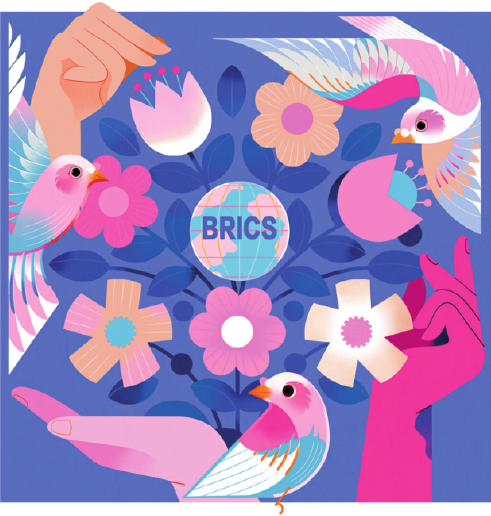
Today's Top News
- Xi attends commissioning of China's Fujian aircraft carrier
- Xi congratulates Paul Biya on re-election as president of Cameroon
- Thai king to pay state visit to China
- Mars orbiter snaps images of interstellar object
- Gold VAT trade reform to bring healthier order
- High-standard Hainan FTP emphasized

















